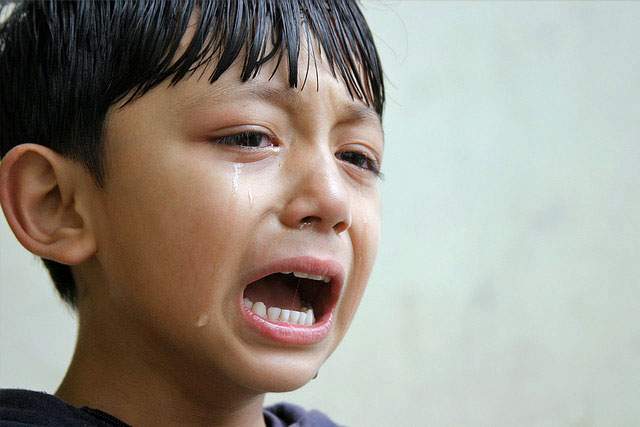
When you burst out crying, you expect the bleary red eyes and the rivers of tears that stream down your cheeks. But on top of all that, your nose starts to run like a faucet. Why does this happen? What's the connection between crying and a runny nose?
Where Do Tears Come From?
Tears come from tear glands located just over the eye, behind the bone. As tears rinse down over your eye, they collect at the rims of your lower eyelids, where some may overflow and stream down your cheeks.
But that's not the only escape route for overflowing tears. If you look very closely at the inside of your eyelid, right near your nose, you'll see a tiny little hole. You might need to gently pull your eyelid down to see it, because it's on the inner edge of the eyelid, resting against the eye.
River Tears
These little holes, on the upper and lower eyelids of both eyes, serve as drains and lead into canals that run through grooves in the bones of the face and eventually empty into the nose. Even when you're not crying, some of the normal, everyday tears that moisten and clean your eyes drain out through this secret passageway into the nose, but it's such a small amount that you don't notice it.
When the tears really start to gush, however, this unnoticeable trickle turns into a river. As the tears make their way down through the nose, they moisten and loosen other secretions on the way. And that's when you reach for a tissue!









